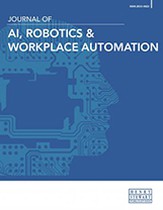Share these talks and lectures with your colleagues
Invite colleaguesFrom code to coin: Unravelling the practical business impact of algorithmic pricing
Abstract
This paper examines the impact of algorithmic pricing on company value and presents the results of 31 expert interviews in various industries. The focus is on nine hypotheses, including the efficiency of automation, segmentation and value-based pricing, efficient resource allocation, perception of fairness, price transparency and uncertainty, the use of personal data and price competition. The surveys show that algorithmic pricing has considerable potential for efficiency gains through automation, particularly in terms of revenue growth. The potential for cost savings, however, varies from sector to sector. Segmentation and value-based pricing are proving to be feasible, but their implementation requires clear justification and economic rationale. Efficient resource allocation through dynamic pricing shows potential, especially in industry-specific scenarios. The perception of unfairness can have a negative impact, however, and personalised pricing risks alienating customers and reducing business value. Price transparency and uncertainty have a mixed effect, as customers often place more value on the transparency of alternative offers than on the company’s pricing process. The use of personal data poses a low risk to company value if it is transparent and mutually beneficial. The potential intensification of competition through algorithmic pricing depends on the market structure and the company’s objectives; however, algorithmic pricing can be used as an instrument to reduce price competition and increase company value. Overall, the results make it clear that the integration of algorithmic pricing strategies must be carefully and ethically designed in order to sustainably increase company value.
The full article is available to subscribers to the journal.
Author's Biography
Peter Rathnow teaches strategic and international management at the Technische Universität and the International School of Management Munich, Germany. He has been involved with advanced price management for more than 20 years, from different perspectives: as a university lecturer, as a senior manager of a leading consulting company and as a global representative for various business divisions of a large corporation.
Benjamin Zeller is a Director Corporate Strategy for a dental manufacturer based in Liechtenstein. His first encounter with the topic of price management was during his Master’s degree in strategic marketing management at the International School of Management Munich. As a young professional, Benjamin has gained experience in areas such as sales operations, market research and price management as well as more recently in strategy and innovation management.
Matthias Lederer is Professor of Information Systems at the OTH Technical University of Applied Sciences Amberg-Weiden, Germany. Prior to this, he was a Professor at the International School of Management Munich and Chief Process Officer at the IT Service Centre of the Bavarian justice system. His previous positions include research assistant at the University of Erlangen-Nuremberg and strategy consultant for the German industrial company REHAU. Matthias holds a Doctorate and a Master’s degree in international information systems and is the author of over 80 scientific publications in this field.
